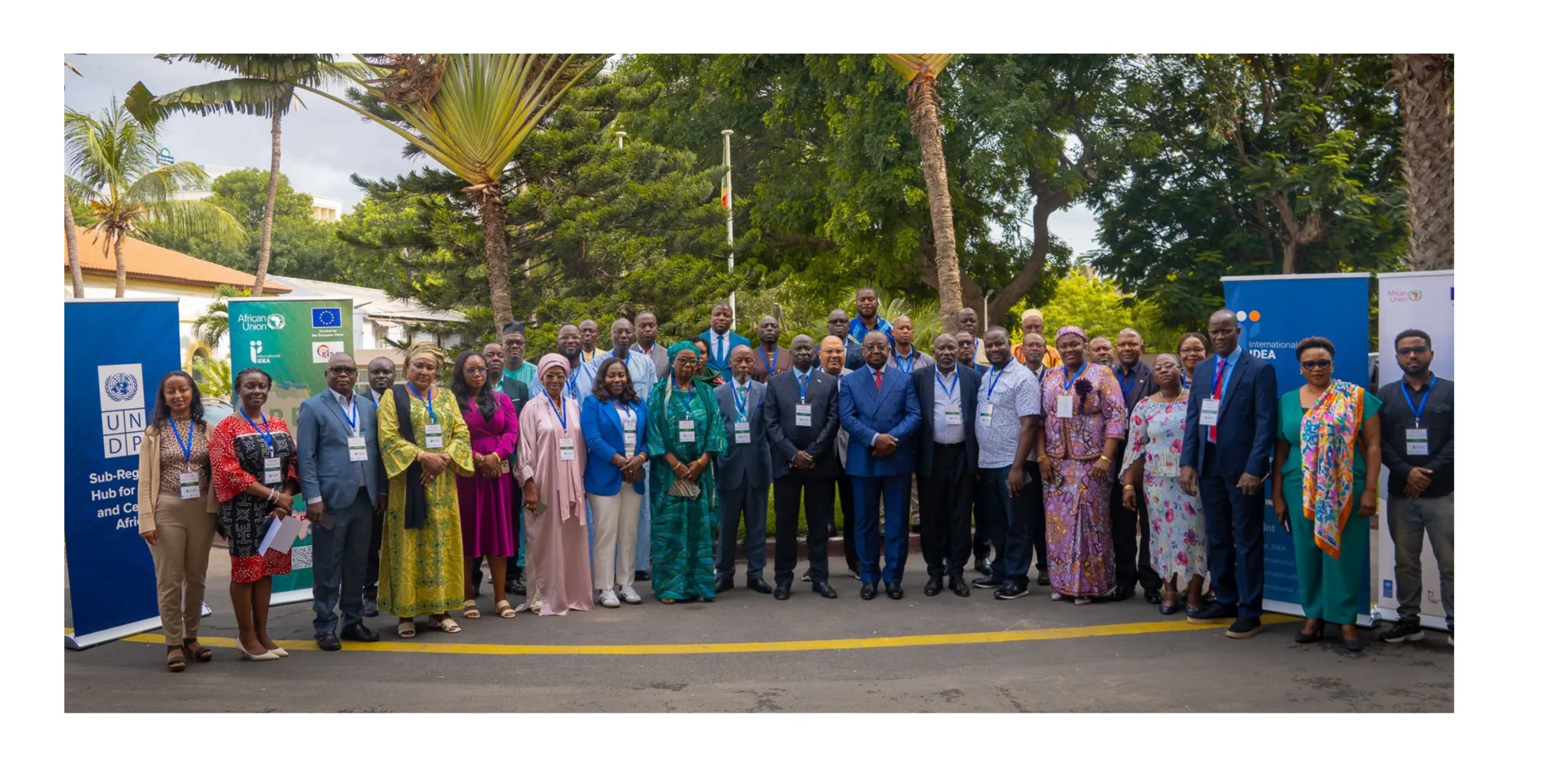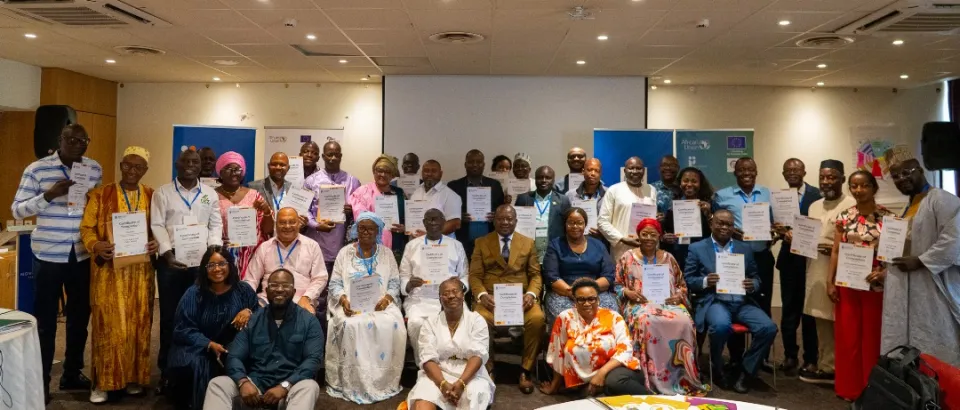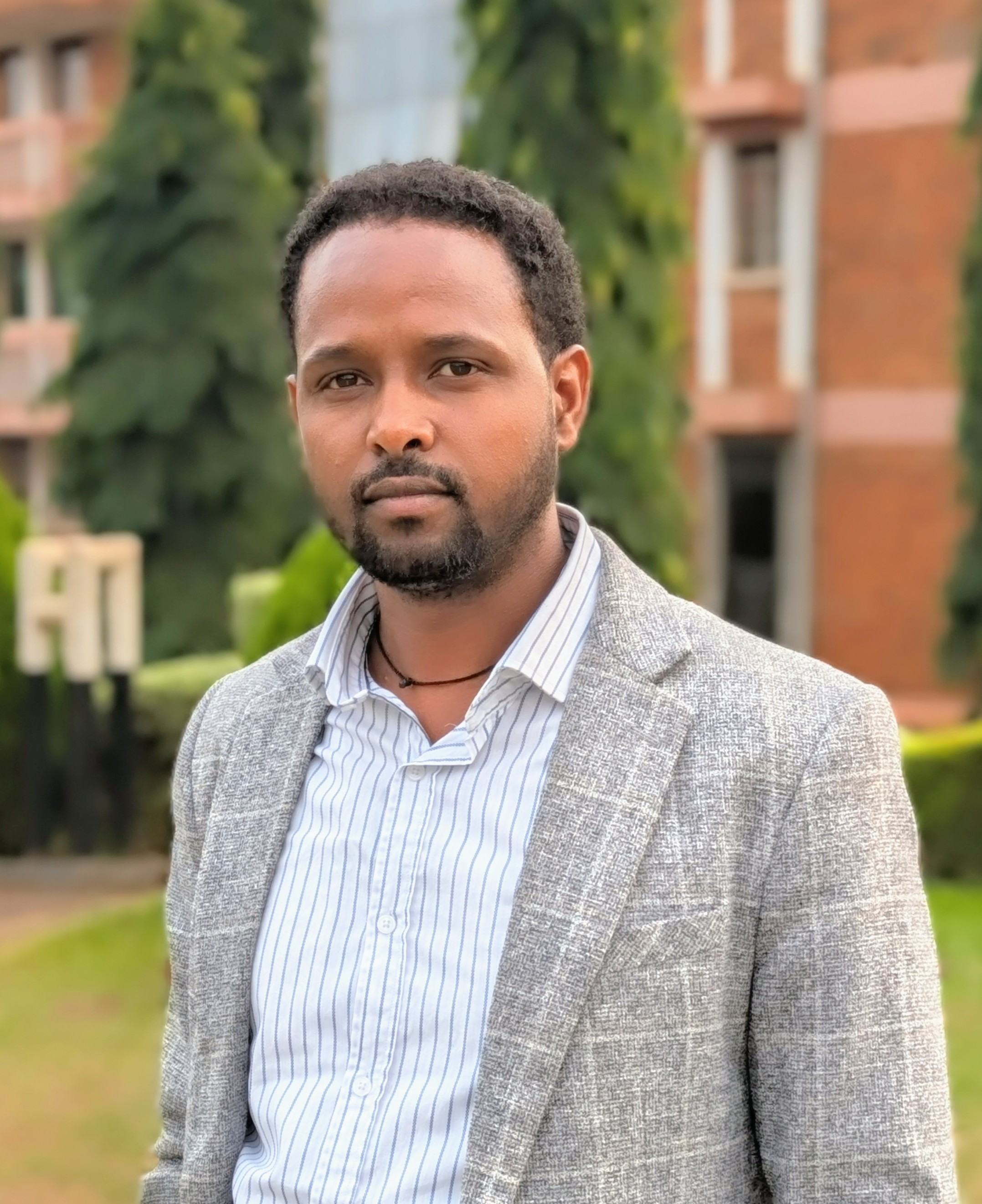African electoral authorities boost readiness through BRIDGE training in Dakar

Hosted by the African Union (AU) in partnership with the International Institute for Democracy and Electoral Assistance (International IDEA) and the United Nations Development Programme (UNDP). The workshop was delivered within the framework of the European Union-funded initiative Strengthening Pan-African Capacities for Electoral Observation and Assistance (SPEC) project. The training was facilitated by Rindai Vava, Ibrahima A. Niang, Karine Kakasi and Vera Muring.
The timing of the training was critical, considering that at least 15 African countries are heading towards elections between the last quarter of 2025 and 2027. In line with this, the training assembled Election Management Bodies (EMBs) from around 15 African countries, together with regional EMB networks from across the continent. It included both technical experts and senior-level officials, with the primary aim of enhancing their technical capacity, reinforcing institutional resilience, and ensuring preparedness to conduct elections that are credible, inclusive, and oriented toward future challenges.
Dr Ibrahima Amadou Niang, Governance Team Leader at UNDP Senegal, noted that “This is an opportunity to rethink our governance processes and make the right choices for our countries, Elections can either widen exclusion or transform institutions and strengthen democracy.”
The training examined the full election cycle from legal frameworks and operational planning to voting day procedures and post-election assessments while aligning with international standards, including the African Charter on Democracy, Elections, and Governance (ACDEG).
Participants emphasized the value of effective operational planning, noting that it enables EMBs to map critical timelines, identify needs, and anticipate risks thereby fostering better coordination and more widely accepted electoral outcomes. A strong focus was also placed on building ethical capacity and enhancing EMBs’ ability to mitigate electoral fraud and handle disputes. Election observation often seen as ceremonial, was reframed as a critical mechanism for measuring democratic health. Observers were encouraged to look beyond logistics and assess broader systemic barriers.
In his remarks, Ambassador Calixte Aristide Mbari, Head of the Democracy, Elections and Constitutionalism Division of the African Union Commission reiterated that “The AU stands ready to support Member States in organizing transparent, peaceful elections that contribute to development and stability.”
Ms. Olufunto Akinduro, Senior Adviser Electoral Processes of International IDEA, underlined the paramount importance of the training and continued to stress International IDEA’s strong resolve to collaborate with Electoral Management Bodies (EMBs), partner organisations, and other stakeholders to bolster and deepen the credibility, transparency, and integrity of electoral processes across Africa.
Inclusivity was one of the topics covered in the training. Sessions focused on promoting gender equality, youth participation, and accessibility for persons with disabilities (PWDs). Participants shared strategies for embedding inclusivity into electoral systems to ensure they reflect and represent all segments of society.
The training addressed emerging threats to electoral integrity, particularly those stemming from cybersecurity vulnerabilities. With the increasing digitization of elections, EMBs explored the dual challenge of:
- Harnessing AI and data analytics to transform electoral data into actionable insights
- Safeguarding sensitive information from cyber threats and combating misinformation and disinformation, particularly on social media
Participants stressed the importance of proactive strategies, continuous training, and specialized personnel to effectively manage these digital-age threats. They reflected on how Senegal's example can offer valuable lessons in building legitimacy, peace, and development through inclusive, well-managed elections.
The BRIDGE training in Dakar served as a vital platform for reinforcing the capabilities of African EMBs. By integrating global best practices with African frameworks like the ACDEG, the program equipped election officials not only with technical knowledge but also with the tools to promote trust, inclusivity, and long-term democratic resilience.
The training marked a significant step toward ensuring that upcoming elections across Africa are not only free and fair but also forward-thinking and fully prepared for the evolving challenges of the 21st century.
Resource: For further information please read/download the BRIDGE report





